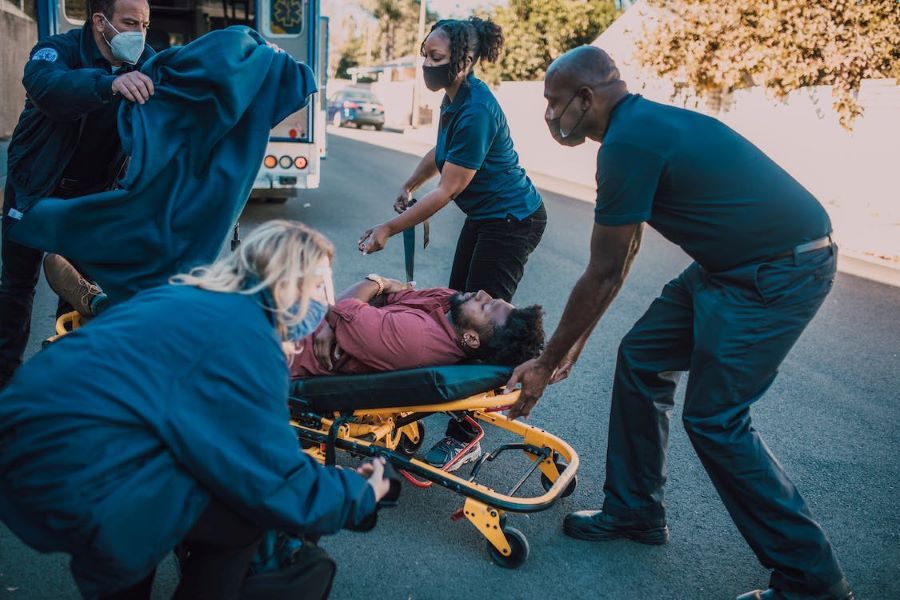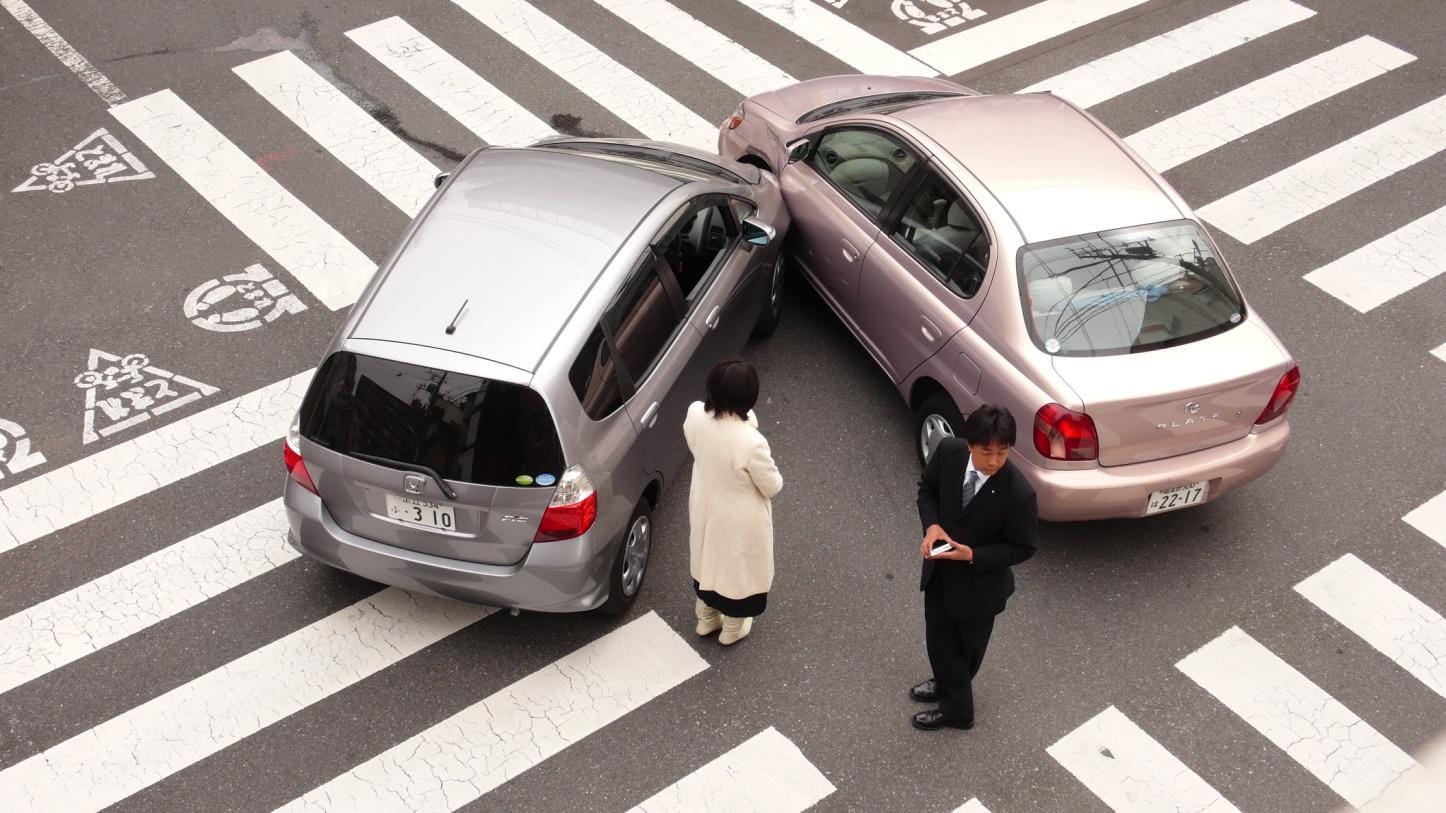
If you’ve been involved in a car accident, the aftermath can be overwhelming. Dealing with injuries, vehicle damage, and the ensuing legal complexities is challenging enough. But what happens when the person at fault for your accident is deceased? How does this impact your ability to seek compensation for damages and navigate the legal process? In this article, we’ll address these concerns and guide you through the steps you should take if you find yourself in this unfortunate situation.
Can I Pursue a Case if the Driver At-Fault has Died?
The short answer is yes; you may still have a case even if the at-fault driver has passed away. While the process may be different, it doesn’t necessarily mean you’re left without options. You can often still pursue a claim against the deceased driver’s estate. However, the legal landscape becomes more complex, and seeking guidance from an experienced attorney who can navigate you through the nuances is crucial.
What Happens When an At-Fault Driver is Killed in a Car Accident?
When an at-fault driver is killed in a car accident, it introduces a unique set of legal consequences that can significantly impact the process of seeking compensation for damages. Understanding these consequences is crucial for individuals involved in accidents where the responsible party has passed away. Here’s a comprehensive look at what happens and the legal implications:
Liability Shift to the Deceased Driver’s Estate:
When an at-fault driver is killed in a car accident, the responsibility for the accident typically transfers to the deceased driver’s estate. This means the estate becomes accountable for any resulting damages, including medical expenses and property damage.
Identification of the Personal Representative:
The first step in pursuing legal action is identifying the personal representative of the deceased driver’s estate. This individual, appointed through the deceased’s will or by the court, manages the legal affairs arising from the accident.
Involvement of the Insurance Company:
The deceased driver’s insurance company remains involved, but negotiations and discussions now revolve around the insurance company and the deceased driver’s estate. The insurance company becomes a key player in resolving the financial aspects of the accident.
Probate Process Navigation:
Dealing with a deceased at-fault driver often entails navigating the probate process. This legal procedure involves settling the deceased person’s estate, addressing debts, and distributing remaining assets to heirs or beneficiaries.
Filing a Claim Against the Estate:
The injured party or their legal representative must file a claim against the deceased driver’s estate to seek compensation for damages. Strict adherence to legal procedures and statute of limitations is crucial.
Time Sensitivity of Legal Action:
Initiating legal action against a deceased driver’s estate is time-sensitive. Strict deadlines apply in many jurisdictions, emphasizing the importance of seeking legal representation promptly after the accident.
Proving Liability:
Establishing the deceased driver’s liability is a critical aspect of the legal process. Gathering evidence to demonstrate the driver’s negligence or wrongful actions is essential for a successful claim.
Wrongful Death Claims:
In cases where the accident results in a fatality, a wrongful death suit may come into play. Surviving family members or beneficiaries can pursue legal action seeking compensation for the loss of their loved one due to the negligence or wrongful act of the deceased driver.
Importance of Legal Representation:
Seeking legal representation is imperative when dealing with the aftermath of an accident involving a deceased at-fault driver. An experienced wrongful death lawyer guides the injured party through the complexities, identifies the personal representative, and ensures proper steps are taken for a successful claim.
How Do You File a Lawsuit Against a Negligent Deceased Driver?
Filing a lawsuit against a negligent deceased driver involves several key steps.
Identify the Personal Representative: The first step in filing a lawsuit against a negligent deceased driver is to identify the personal representative of the driver’s estate. This individual is typically appointed through the deceased person’s will or by the court.
Seek Legal Representation: Engage the services of an experienced attorney who specializes in wrongful death and personal injury cases. A knowledgeable attorney will guide you through the legal process, ensuring all necessary steps are taken.
Gather Evidence: Building a strong case requires gathering evidence to establish the deceased driver’s negligence. This may include accident reports, witness statements, and other relevant documentation supporting your claim.
Determine Damages: Identify and quantify the damages you suffered from the accident. This may include medical expenses, property damage, lost wages, and other economic and non-economic losses.
File a Claim Against the Estate: With the assistance of your attorney, file a formal claim against the estate of the negligent deceased driver. Adhere to applicable statutes of limitations, as filing deadlines are typically time-sensitive.
Negotiate or Litigate: Once the claim is filed, negotiations with the deceased driver’s estate or their insurance company may ensue. Your attorney will work to reach a fair settlement. If negotiations fail, be prepared to pursue litigation through the court system.
Can You Still Seek Compensation for Damages if the At-Fault Driver is Deceased?
Yes, you can still seek compensation for damages even if the at-fault driver is deceased. The process involves pursuing a claim against the deceased driver’s estate. This claim may include seeking compensation for medical expenses, lost wages, and other economic damages resulting from the accident. While the dynamics change, a skilled attorney can help you navigate the complexities and ensure you receive the compensation you deserve.
How an Attorney Can Help You in This Case
A wrongful death attorney is invaluable when dealing with a situation where the at-fault driver is deceased. Here’s how legal representation can benefit you:
Identifying the Personal Representative: Your attorney will help identify and locate the personal representative of the deceased driver’s estate, a crucial step in initiating legal proceedings.
Navigating the Legal Process: The legal process involving a deceased at-fault driver is complex. An attorney will guide you through the necessary steps to meet all legal requirements.
Determining Liability: Proving liability in a deceased person’s case requires skill and expertise. Your attorney will gather evidence, interview witnesses, and build a strong case to establish the at-fault driver’s responsibility for the accident.
Maximizing Compensation: Your attorney will work to ensure you receive fair and just compensation for your damages. This may include medical expenses, lost wages, and even punitive damages in some instances.
Handling Insurance Companies: Dealing with the deceased driver’s auto insurance company and the estate can be challenging. An attorney will handle communications, negotiations, and any legal proceedings, allowing you to focus on your recovery.

Get Help from Seasoned Attorneys at BLG
Being involved in an auto accident is distressing, and the situation becomes even more complicated when the at-fault driver is deceased. However, it’s crucial to understand that you still have legal options to pursue compensation for your damages. Seeking the assistance of an experienced attorney is the first step in navigating the legal landscape and ensuring that your rights are protected.
If you find yourself in this unfortunate situation, don’t hesitate to seek legal representation immediately. An attorney will guide you through the process, handle the complexities of dealing with a deceased at-fault driver, and work tirelessly to secure the compensation you deserve. Remember, you don’t have to face this challenging situation alone – legal help is available to support you on the road to recovery.
Navigating the legal complexities of a car accident becomes even more challenging when the at-fault driver is deceased. At BLG, our seasoned attorneys specialize in handling cases involving deceased at-fault drivers, ensuring you receive the compensation you deserve.
Contact BLG today for a free consultation.
FAQs
What happens when someone dies at the scene of an accident?
When someone dies at the scene of an accident, law enforcement and emergency services are typically called to the scene. They will investigate to determine the cause of the accident. The deceased person’s body may be taken to a medical examiner’s office for autopsy, and the authorities will work to notify the next of kin.
What if someone dies in an accident?
In the aftermath of a fatal accident, the legal process may involve investigations by law enforcement and insurance companies. If someone else’s negligence caused the accident, the surviving family members may have the right to pursue a wrongful death claim against the responsible party.
What happens to a settlement when a person dies?
If a person dies after reaching a settlement, the distribution of the settlement depends on various factors, including whether the settlement was finalized or still pending. In some cases, the settlement may become part of the deceased person’s estate and distributed according to their will or the laws of intestate succession.
What is the compensation for accident death?
Compensation for accident death, often pursued through a wrongful death claim, may cover various damages such as medical expenses, funeral costs, loss of financial support, and emotional distress. The specific amount of compensation can vary based on factors such as the circumstances of the accident, the extent of damages, and local laws.





